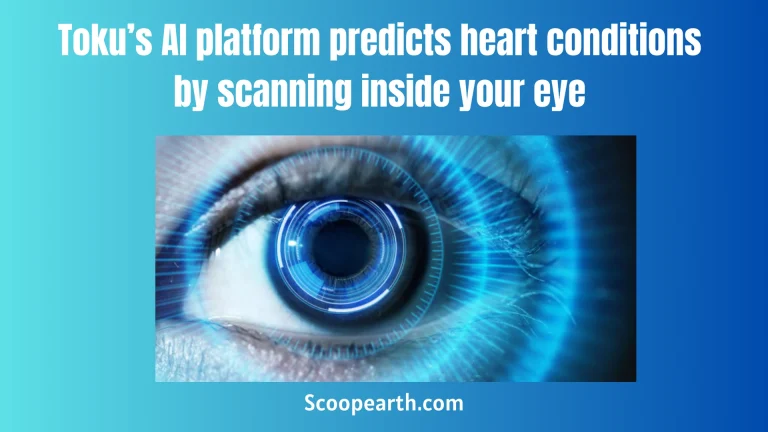The CEO and co-founder of Toku, Ehsan Vaghefi, was raised by a blind father who went blind at the age of four from congenital glaucoma. Because of this, his father was active in his native Iran with the Blind Foundation. Vaghefi claims that the majority of his childhood pals had blind parents or were blind themselves.
Vaghefi considered going into medicine to assist those in a similar predicament to his father’s. However, he was also curious about how technology might be utilized to help a more significant number of people than a single physician could manage. He veered off course and focused on health technology, founding Toku to investigate ocular imaging and its potential for diagnosis.
Having secured over $15 million in research grants focused on early disease detection using ocular imaging, Vaghefi, an associate professor in optometry and vision science at the University of Auckland, expressed, “From an early age, I realized that working solely as a clinician would confine me to the constraints of time. I dedicated myself to leveraging technology and innovation to extend healthcare access to the broader population.”
Toku begins by pointing out that glaucoma and heart-related disorders are closely associated. Therefore, a patient’s eye examination can inform a doctor about how well the patient’s cardiovascular system functions. Its flagship product is a non-invasive retinal scan and technology platform called CLAiR. It is driven by artificial intelligence and can identify cardiovascular risks and associated conditions, including type 2 diabetes and stroke.
Toku claims that CLAiR, a technology that uses artificial intelligence (AI) to “read” minute signals from the blood vessels collected in retinal scans, can evaluate the risk of heart disease, hypertension, or excessive cholesterol in as little as 20 seconds. Furthermore, the platform’s diagnostics can be included in any standard eye exam because it integrates with currently available retinal imaging cameras.
This year, the company secured $8 million in a Series A funding round spearheaded by Japanese corporation Topcon Healthcare and American optical retailer National Vision. Nonetheless, it remains in its early stages.
Clair recently attained “breakthrough device status” from the U.S. Food and Drug Administration (FDA). CLAiR is compatible with current retinal imaging cameras.
The CEO clarified that the FDA’s groundbreaking product designation “significantly shortens the de novo process” to reach the market. “A designated FDA team of experts working with the startup to de-risk the accreditation process” is made available to Toku as a result, he continued.
“With the breakthrough designation program, any product that receives final FDA approval can benefit from an automatic current procedural terminology (CPT) reimbursement code as soon as the final approval is granted,” Vaghefi stated.
Nevertheless, this also suggests that it must still be available for purchase. The startup anticipates becoming the inaugural medical device company in the United States to provide an affordable, non-intrusive means of assessing the likelihood of CVD by utilizing a photograph of the retina located at the back of the eye, pending FDA clearance and accreditation.
Established in 2019 in Auckland, New Zealand, the company employs 20 individuals. Earlier this year, it moved its headquarters to San Diego, California.
Toku plans to launch its crucial trial in the middle of 2024 and become on sale by the end of 2025. It is getting ready for that deployment following final approval by collaborating with strategic backers, including Topcon Healthcare and National Vision.
Notably, Toku is one of many firms to develop a solution that uses retinal analysis to forecast cardiovascular illness.
An AI program that might estimate the risk of heart disease by scanning a patient’s eye was being developed, according to statements made five years ago by Google and Alphabet’s Verily. But this still needs to be implemented. Meanwhile, the new AI tool may replace several traditional tests, including MRIs, CT scans, and X-rays. Another comparable firm is MediWhale, based in South Korea, which has developed an AI-based non-invasive retina scan to diagnose kidney and cardiac diseases.
Adults with regular eye checkups who are asymptomatic will typically be Toku’s end users. It will be used in retail optometry, primary care clinics, ophthalmology clinics, and pharmacies with retinal cameras installed.
Patients with CLAiR identified as having an elevated cardiovascular risk will be sent to their primary care physicians for further testing. In response to inquiries over its privacy and data retention policy, Toku stated that it abides by ISO 13483 and the Health Insurance Portability and Accountability Act (HIPAA), guaranteeing that only authorized individuals can access a patient’s medical records.
[Source of Information: Techcrunch.com]










